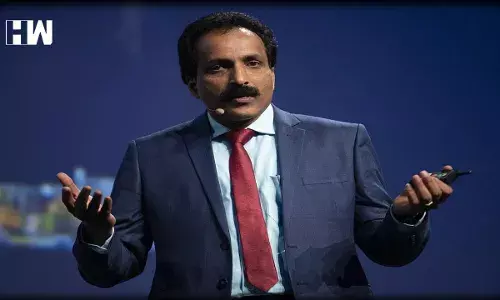New Delhi: Indian Space Research Organisation (ISRO) Chairman S Somanath Monday said that there is a need for more partnerships with the Indian academia, as it is through scientists that data obtained from space-based missions get used and studied, ultimately leading to the enhancement of scientific knowledge.
Somanath was addressing the inaugural session of the 21st National Space Science Symposium (NSSS) being hosted by the Indian Institute of Science Education and Research (IISER), Kolkata and jointly organised with the ISRO. This was Somanath’s first public event after assuming charge as the ISRO chairman. Originally scheduled to be held in 2021, this biennial event was postponed and decided to be held virtually owing to the prevailing Covid-19 pandemic situation.
“The ISRO can engineer and launch missions but to make them more fruitful, the knowledge enhancement is up to the scientists (who use ISRO data). We expect scientists to come up with skills to use mission data and perform studies which will contribute to the globally available knowledge pool,” said Somanath.
On increasing the partnership, Somanath, who is also the secretary of the Department of Space, further said, “We will need to create the required capabilities and capacities to trigger research interest among scientists, who can use data obtained from ISRO missions and create new findings. The ISRO also needs scientists who can ideate new instruments for carrying out measurements for our future missions.”
The space agency chief urged the scientific community to have a holistic approach towards space sciences.
“All the components of the perceivable space like the Earth, the Sun, the planets, astronomical sources, asteroids, comets, natural satellites, galaxies, exoplanets – all of these need to be studied with individual importance and their connections need to be explored. After all, nothing is isolated and space is a giant web of interconnectedness, making it wholesome and leading to holistic study,” he said.
In ISRO’s 66-year-long journey starting from sounding rocket experiments to carrying out very specific experiments today, space exploration is not an investment that will yield immediate returns, remarked Somanath.
“But it is an investment in specific space science explorations having bigger roles like gaining scientific knowledge of the past and present status of our solar system, the cosmos, to answer outstanding problems on the origins of life, to predict the future of the earth and other planetary bodies and to expand human presence in other planets as an alternate abode for the sustenance of the human race,” the ISRO chief said.
With the Covid-19 pandemic continuing to limit in-person meetings and scientific outreach activities, the ISRO is planning to commence its scientific outreach activities. The space agency will conduct at least one or two virtual sessions a month, A S Kiran Kumar, former ISRO chief and member of the 21st NSSS organising committee, said on the occasion.
Sourav Pal, Director, IISER Kolkata announced that its Centre of Excellence in Space Sciences India (CESSI) will soon house a Space Optics Instrumentation Facility that will bring physicists and astronomers together to design and develop instruments.
As an independent media platform, we do not take advertisements from governments and corporate houses. It is you, our readers, who have supported us on our journey to do honest and unbiased journalism. Please contribute, so that we can continue to do the same in future.

